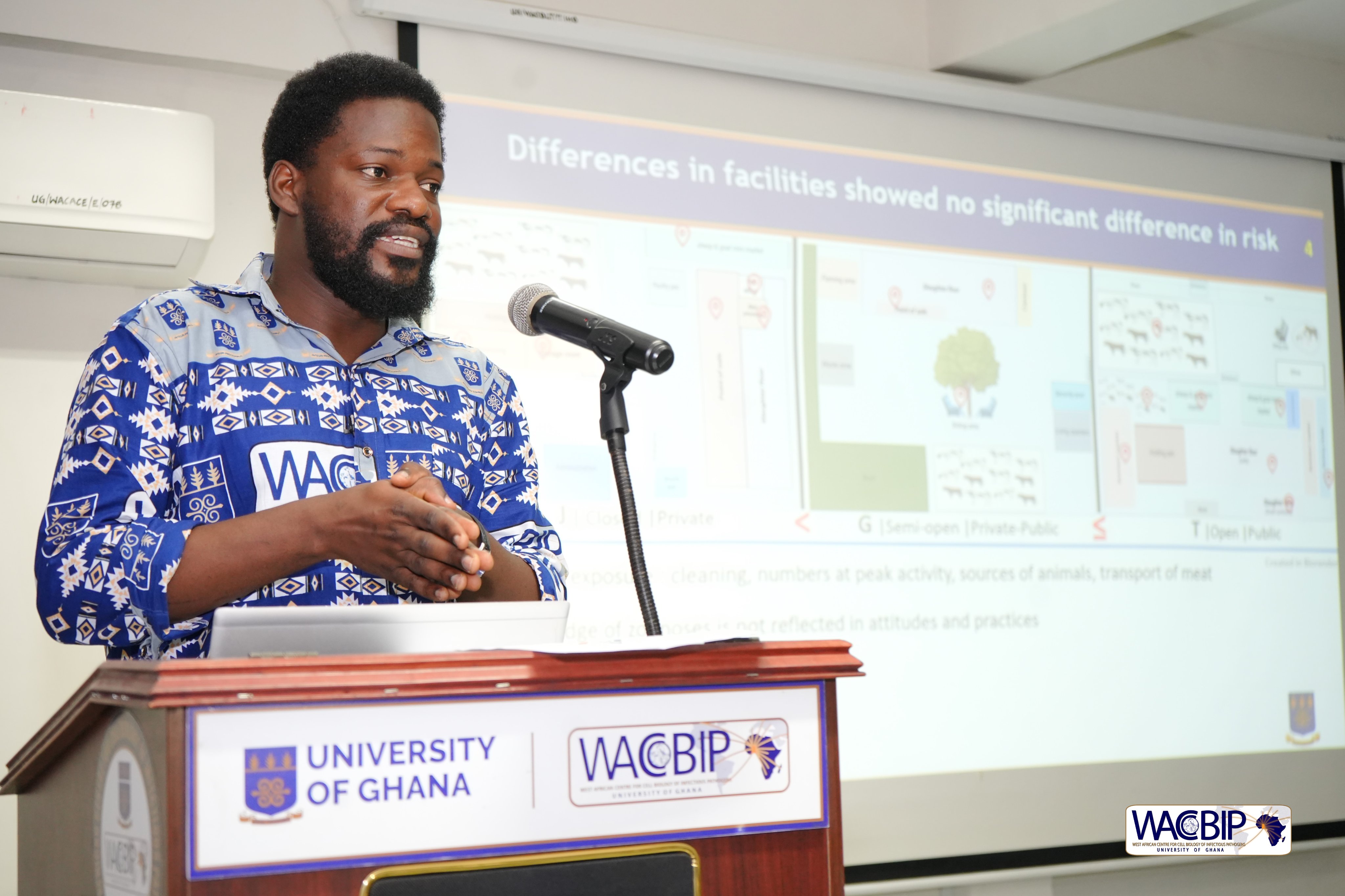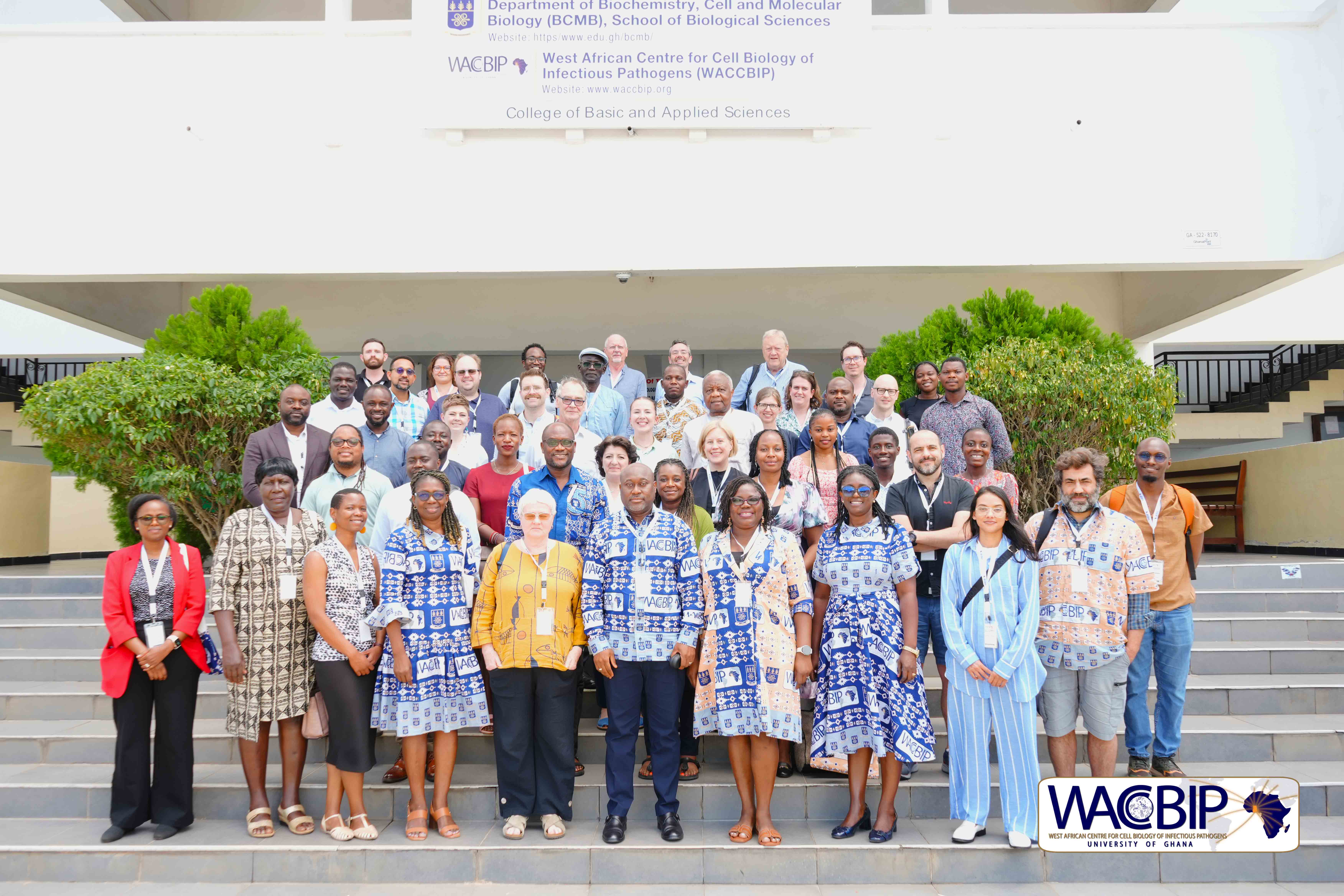Programme Title:
MSc. Bioinformatics
Level of programme:
Master of Science ( MSc)
Institution:
West African Centre for Cell Biology of Infectious Pathogens - University of Ghana
Aim
The MSc Bioinformatics programme is aimed at training, producing and equipping postgraduates with the necessary advanced knowledge in bioinformatics to meet national and sub-Saharan Africa regional research needs.
Objectives
The programme will have the following objectives:
• To recognize and describe the fundamentals of bioinformatics.
• To apply bioinformatics tools and techniques in solving real-world biological problems.
• To demonstrate ability to conduct basic and applied research using bioinformatics tools.
• To design bioinformatics tools that can be used in mining and analyzing biological and life science data.
• To critique existing bioinformatics tools and related research.
Intended/Expected Outcomes
Upon successful completion of the MSc Bioinformatics programme, students should be able to:
• apply knowledge of the basic principles and concepts of bioinformatics, data science, biology, biocomputing, mathematics and statistics to address biomedical research needs.
• understand and use programming languages and existing software/tools effectively to extract data from large biomedical repositories and to use this information in computational modeling and simulations.
• use genomic applications to develop innovative solutions in diagnostics, drug design and vaccine development.
• demonstrate problem-solving skills, including the ability to develop new algorithms, pipelines, platforms. and analysis methods.
• acquire the necessary skills in writing and communicating scientific and technical reports.
Admission Requirements:
The entry requirement for the MSc Bioinformatics Programme is a first degree, preferably second class lower or better (or a Final Grade Point Average of at least 2.0), for both Ghanaians and International students in either of the life sciences, engineering or mathematics at the University of Ghana or any recognized/accredited University. Applicants with a third class may be considered for admission in exceptional cases based on at least 3 years work experience.
Requirements For Graduation
Duration 12 months (full-time; two semesters)
Taught course 30 - 36 credits (15 -18 credits per semester)
Seminar 3 credits
Project 6 credits
Total 39-45 credits
Target Market and Employability:
The course is career-oriented, targeting mathematicians, engineers, computer, physical and life scientists who wish to establish and consolidate a career in biological data science and bioinformatics. The nature and approach of the programme allows graduates to pursue their career options which include research, teaching, industries, consulting. and personal development through pursuance of further studies.
Components of the programme
- Core Course (s)
i. BINF601 Principles of Bioinformatics
ii. BINF603 Biocomputing - Python, Linux
iii. BINF605 Statistical computing using R
iv. BINF607 Structural Bioinformatics I
v. BINF609 OMICS I: NGS technologies and analysis tools
vi. BINF602 OMICS II: Metagenomics
vii. BINF604 Structural Bioinformatics II
viii. BINF606 Biological databases - Elective Course (s)
i. BINF611 Molecular informatics
ii. BSTT601 Methods in Biostatistics
iii. BINF612 Proteomics
iv. BINF614 Machine Learning - Mandatory Course (s)
N/A - Research Component
i. BINF610 Seminar I
ii. BINF600 Project - Competence-Based Training (CBT) Component
i. BINF600 Project - Problem-Based learning (PBL) Component
This inquiry-based learning approach will help students to investigate, and apply the principles of bioinformatic software in addressing problems. Students will be guided to map problems in bioinformatics, prioritize the problem, investigate, analyze results, generate solutions, and make recommendations. - Practical training, industrial attachment, internship, clinical experience
The department has a well-equipped bioinformatics laboratory with desktops running on a LINUX operating system. This lab is also supported by a High-Performance computing unit which is houses at the University of Ghana Computing Services unit. The department has also identified key industrial partners as outlined in section 12.2 where the students can undertake industrial attachments, internships and experience.
How to Apply
Applications for this programme are to be made via the University of Ghana Graduate Admissions Page via this link






